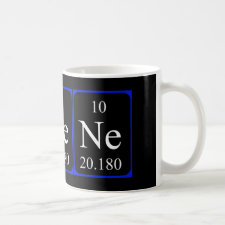
Authors: Al-Degs YS, Abu-Surrah AS, Ibrahim KA
Article Title: Preparation of highly selective solid-phase extractants for Cibacron reactive dyes using molecularly imprinted polymers.
Publication date: 2009
Journal: Analytical and Bioanalytical Chemistry
Volume: 393
Issue: (3)
Page numbers: 1055-1062.
DOI: 10.1007/s00216-008-2502-1
Abstract: Abstract: Selective polymeric extractants were prepared for preconcentration of Cibacron reactive red dye, a dye that is often applied with Cibacron reactive blue and Cibacron reactive yellow for dyeing of fabrics. The best extractant was fabricated (in chloroform) using methacrylic acid (as monomer), ethylene glycol dimethacrylate (as crosslinker), AIBN (as initiator for polymerization), and red dye as template molecule, with a molar stoichiometric ratio of 8.0:40.0:2.5:0.63, respectively. The structure of the molecularly imprinted polymer (MIP) was robust, and resisted dissolution up to 260 °C. Compared with the un-imprinted polymer, the imprinted product has a large specific surface area which improved its adsorption capacity. The effect of imprinting was obvious from the adsorption capacity measured at pH 4 for red dye (the imprinted molecule), which was increased from 24.0 to 79.3 mg g?1 after imprinting. Equilibrium adsorption studies revealed that the dye-imprinted-polymer enables efficient extraction of red dye even in the presence of blue and yellow dyes which have similar chemical natures to the red dye. The selectivity coefficients S red dye/dye, were 13.9 and 17.1 relative to the yellow and blue dyes, respectively. The MIP was found to be effective for red dye preconcentration, with a preconcentration factor of 100, from tap water and treated textile wastewater. The factors affecting extraction of red dye by the MIP were studied and optimized. Under the optimized extraction conditions, red dye was selectively quantified in the presence of other competing dyes at a concentration of 20 ?g L?1 from different water systems with satisfactory recoveries (91–95%) and RSD values (?5.0%)
Template and target information: Cibacron reactive red dye
Author keywords: Reactive dyes, separation, Molecularly imprinted polymers, Solid-phase extraction



Join the Society for Molecular Imprinting

New items RSS feed
Sign-up for e-mail updates:
Choose between receiving an occasional newsletter or more frequent e-mail alerts.
Click here to go to the sign-up page.
Is your name elemental or peptidic? Enter your name and find out by clicking either of the buttons below!
Other products you may like:
 MIPdatabase
MIPdatabase









